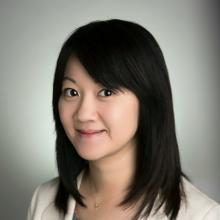Member Spotlight: Angela Chow
Associate Professor, Department of Applied Health Science, Indiana University School of Public Health – Bloomington; SRCD Asian Caucus Chair of the Outreach and Communications Sub-Committee.
What interested you in becoming a developmental scientist?
When I was a kid, I had friends who were academically high achievers, but I also had friends who were strong in other areas. As the adults around kept stressing the importance of education, I kept wondering how our examination grades and our school experience would affect our happiness in the long run. This curiosity continued to grow and expand throughout my graduate and postdoctoral years, which led me to become a developmental psychologist.
What words of wisdom might you pass on to someone on their very first day after deciding to get a Ph.D. in developmental science or related?
I have had the privilege of working with many well-established scholars in multidisciplinary research. Despite their differences in training backgrounds and research approaches, they share one common attribute: they are extremely passionate about their work. Learning from these scholars, it makes a lot of sense for early career researchers to pursue the research topics that they are passionate about. Guided by this passion, they can develop some short-term and long-term goals and identify the training and resources they need for achieving those goals. In addition, establishing collaborations and networking with like-minded mentors and peers will also keep them growing as productive scholars.
What is something you learned in the last month?
My team has been working on a longitudinal survey study (Student Thriving and Resilience Survey; STARS-Survey) of more than 800 undergraduate students in a need-based scholarship program from a Midwestern university. The STARS-Survey is designed to capture behavioral, social-emotional, and academic development in college students with financial needs during the pandemic, with specific attention on their mental health and well-being. Three waves of data have been collected in September 2020, January 2021, and May 2021. Drawing on these three waves of data, my team recently presented a conference poster which examined the trajectories of depressive symptoms, COVID-specific worries, and perceived social support across the three measurement points using multivariate latent growth curve modelling. In line with the timing of vaccine availability, COVID-specific worries decreased from 2020 fall to 2021 summer. However, depressive symptoms continued to rise and perceived social support continued to decrease longitudinally. Among the slopes of the three trajectories, significant association was only found between social support and depressive symptoms. These results suggested the provision of social support would be important in maintaining mental health of colleges students with financial needs.
My team is about to launch Wave 4 data collection for STARS-Survey. The findings of STARS-Survey have been used to inform the design of a virtual, smartphone app-supported intervention which aims to facilitate and foster goal achievement and mental health of college students. This project has kept me busy!
What does the Asian Caucus mean to you?
It has been an honor for me to serve as the Chair of the Outreach and Communications Sub-Committee of Asian Caucus since 2020. I am grateful that the Asian Caucus has played an influential role in promoting, fostering, and facilitating research on Asian child and youth development, as well as the career development of Asian researchers. It is a friendly, resourceful, and supportive network which offers multiple ways for us to support each other and to make our voices heard.
What is a typical day like for you?
What I love about my work is that every day is different, and I am constantly learning! In general, my work can be classified into three categories: research, teaching, and service. In a typical weekday, I usually spend my morning on research such as writing grant proposals or papers. After lunch, I would turn to tasks related to teaching or service, for example, doing departmental tasks and serving on committees. In the evening or after dinner, I would work on research projects again and also make sure to spend time with my family.
